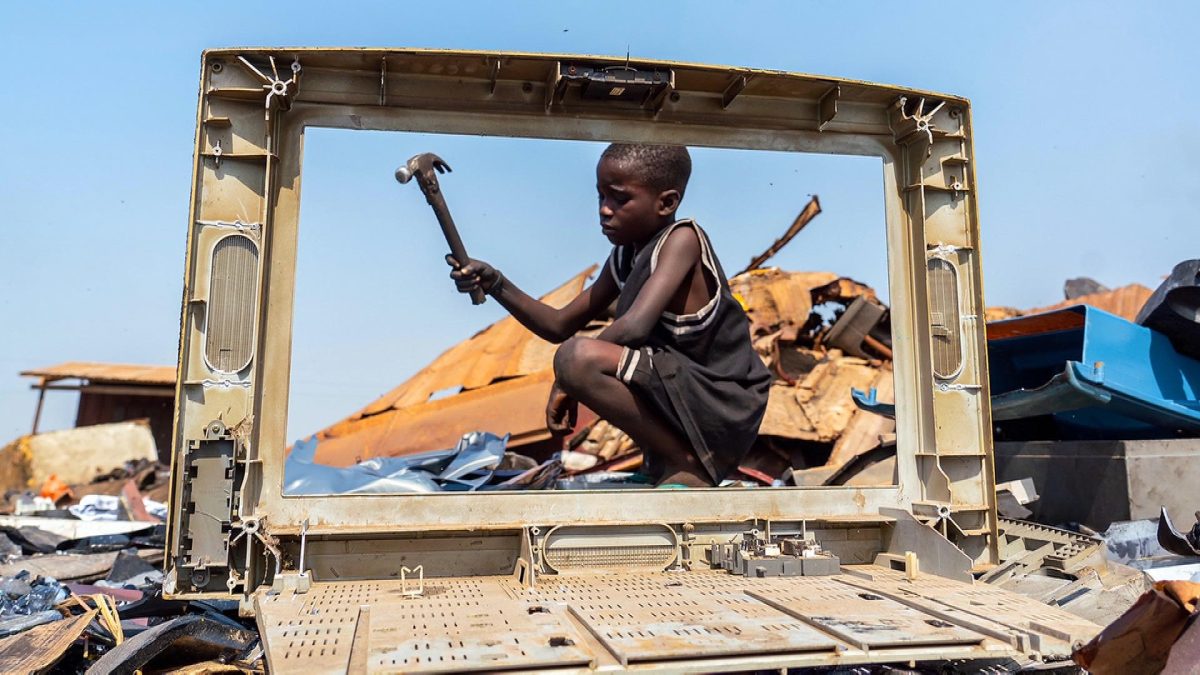Shiny smartphones sparkle before our eyes, tempting customers to purchase the newest one in each cycle. It seems every day a new version of phones, computers, and TVs is on the market. People concern themselves with where their technology originates from but often give no thought to where it is disposed of. Where does “old tech” land when people get rid of it?
It lands in places like Ghana, an impoverished country in West Africa. CBS reporter Seth Doan recently examined the problem and found massive piles of e-waste being managed by the citizens living in the country. Surprisingly, there is 100 times more gold in a ton of smartphones than a ton of gold ore, according to a UN report from 2019. Given the treasure available for extraction, laborers are willing to endure less than standard safety conditions in a process called “urban mining.” Driven to extract value from this e-waste, workers diligently saw circuit boards, cut copper, sell it, and burn what cannot be sold to extract precious metals. During an interview with a local Ghanaian, Doan witnessed poisonous smoke filling the air, along with children living and playing in contaminated water.
This scene is not part of the extravagant ads technology companies inundate society with, urging people to purchase the latest smartphones, TVs, and computers. The UN estimates the world produces 50 tons of e-waste per year and only 20% of this waste is formally recycled. The remaining 80% is sent to countries like Ghana and other developing nations. Along with the immediate dangers of “urban mining” comes the long-term effects of pollution on the environment, people, and animals. Miners burn what they cannot salvage, filling the air with dangerous chemicals that spread for miles. The chemicals often infiltrate large portions of the economy—including the domestic food markets. The vast majority of food produced for consumption is sold in large open air markets, which are exposed to the toxic air and water.
The pollution affects the health of people who live and work alongside the e-waste. Doan’s investigation determined kids are exposed to lead due to the burning. Additionally, a recent study completed by environmental chemist, Anita Asamoah, found “PCBs” and “BFRs” in mothers’ breast milk. These contaminants can cause cancer. Desperate for a meager payout, Ghanaians willingly expose themselves to significant health risks.
Accra, the capital of Ghana, is located on the southern coast near the gulf of New Guinea. Its coastal waters are abundant with fish fueling the Ghanaian economy. Portions of their catches, primarily tuna, are exported for profit. However, e-waste—smartphones, computers, televisions and more—has found its way into the ocean tearing fishermen’s nets and destroying catches and profits, reported Doan. While we are perpetually tempted by the newest and greatest technology ads, we should be conscious of the impact our e-waste has on developing countries around the world.














